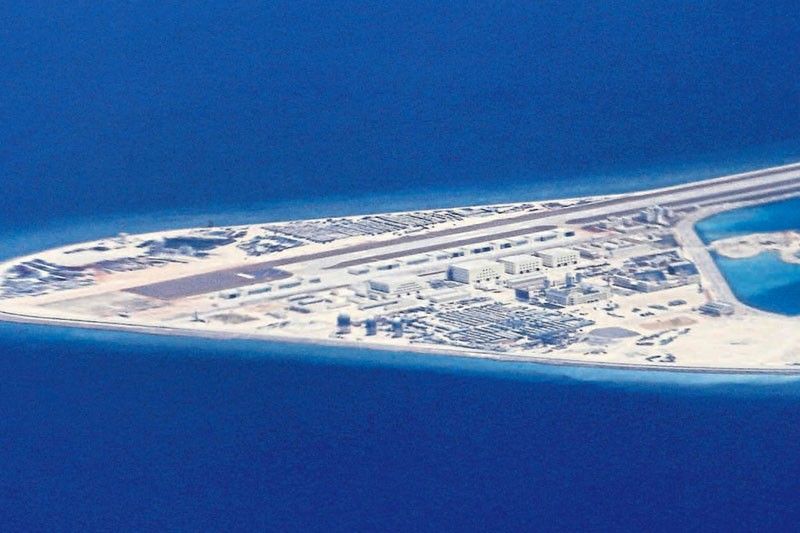Philippines hollow victory over China


(Part 2)
I invited Johanna Son, a Filipino journalist who follows regional affairs, to contribute to my column. She is a Bangkok-based editor of the Reporting ASEAN series. This is reprinted with permission from the ‘Bangkok Post’, which published it on Aug. 20.
By Johanna Son
Below are excerpts from a chat with ‘Rock Solid’ author Vitug.
Q: What was your biggest ‘aha’ moment in the book?
MDV: I said, “My God, the Philippines is one of the top 10 countries in the world with the longest coastline. We are number 5! I never realized that until I was doing the book, that we are a maritime nation, but our policies are land-based. How do we secure 36,000 kilometers of coastline? We have a longer coastline than Japan and the US.
Q: Philippine governments, since the ’60s, have looked at what the country considers Philippine territory and acted accordingly. It bypassed politics. What has happened since the Benigno Aquino government (which filed the lawsuit)?
MDV: When Duterte became president, he chose to be ah, pragmatic. He shelved the ruling, saying that the Philippines needs the help of China to grow the economy and to reduce poverty. That means we need more Chinese investments, trade, tourism, and also that was fueled by his dislike of president Obama at that time. But as mayor of Davao (city), he was quite comfortable already with looking towards China as an ally and a friend. So that’s why when the ruling came, there was not even time for the Filipinos to talk about it, really discuss it, very few occasions in terms of national conversations.
Q: How do you explain this to the average Filipino? The government presented it as a very simplistic issue, meaning the options were only do Filipinos want to go to war with China, or not.
MDV: Correct, it’s a false dilemma. I think that’s part of the strategy of the Duterte government, to downplay the victory. But when I was doing the book, I looked at the national surveys (on) how Filipinos perceived China. Of course it was very low, China is one of the least trusted countries. There was an earlier survey about the attitude of Filipinos towards the West Philippine Sea. The finding was majority of respondents wanted the Philippine government, already under Duterte, to assert Philippine sovereignty.
But if you look at the overall survey wherein the polling outfit asks what are your concerns, it’s mainly economic - food on the table, jobs, inflation - and then the security issue and West Philippine Sea is down below, out of a top 10 maybe number 8. The challenge is still for the general public to understand what this is all about, because sometimes it can be too technical. That was my challenge (in writing) about ownership, territory, sovereign rights. . . . The biggest gain from the ruling is that it has shrunk the disputed area in the South China Sea.
Q: How do you connect the Spratlys to very daily concerns?
MDV: The closest thing that Filipinos can relate to is the issue with the fishermen. Because it’s so clear, there are videos of Chinese harassing fishermen, and there are videos of Chinese fishermen getting our giant clams. So that’s the easiest. That’s the most visual, and the most direct.
Q: There’s an apparent disconnect with the government being not so hot on the US and saying China (instead). Public sentiment is pretty much distrustful of China, much more positive towards the US –
MDV: Yes, and Japan. That’s right, and this has become an issue of patriotism. Recently, people were calling Duterte, a few maybe, (saying) ‘that’s treason’. Following the Putin-Trump incident in Finland, I noticed some in social media and traditional media are saying this can also be treason because while Trump – it was very direct, Russia interfered in their elections – here China has taken over reefs, rocks which are within the Philippines’ EEZ. So there’s already that discussion.
Q: What lessons are there from the Philippines’ story?
MDV: That a court of law is where a small country can fight a hegemon. It’s not the battlefield, it’s not in the waters of the South China Sea, it’s in an international court of law. So the great equalizer, in fact. Then the other lesson, not lesson but maybe benefit, is that now other claimant countries can enter into arrangements with the Philippines, with other claimant countries, to define sea boundaries, with the ruling that the Nine-Dash Line is no longer valid; it was deemed illegal.
- Latest
- Trending

























